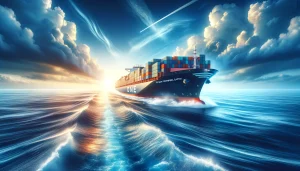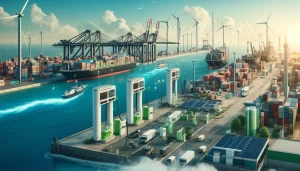Navigating Through Turbulence: The New Reality for Seafarers in the Red Sea and Gulf of Aden
- Increased Risks: The declaration by seafarer unions of the Red Sea and Gulf of Aden as 'warlike' areas comes amid escalating threats in these crucial maritime corridors. These regions have long been pivotal for international shipping, especially for vessels transiting between the Indian Ocean and the Mediterranean Sea via the Suez Canal.
- Implications for Global Logistics: This designation has far-reaching implications for international logistics, potentially rerouting global shipping lanes and affecting shipping times and costs. It also raises important questions about the safety of crew members and the security of cargo passing through these areas.
Deep Dive into the Crisis:
The decision to mark these waters as no-go areas without additional security measures signifies a critical juncture for international trade. The Gulf of Aden, in particular, serves as a vital conduit for much of the world's maritime traffic, including a significant portion of Europe's and Asia's oil supply. The Red Sea, similarly critical, has seen its share of geopolitical tensions, with the conflict in Yemen spilling over into maritime security concerns.
Maritime security experts and supply chain managers now face the challenge of navigating these heightened risks. Alternatives routes, such as around the Cape of Good Hope, present longer journeys and increased fuel consumption, translating into higher costs and extended delivery times. The situation demands a careful balance between ensuring the safety of seafarers and maintaining the efficiency of global supply chains.
Looking Ahead:
As we monitor this developing situation, the broader implications for international logistics remain uncertain. The industry must adapt to these changes, potentially reevaluating risk management strategies and supply chain planning to mitigate disruptions. Furthermore, the international community's response to these security challenges will be pivotal in shaping the future of maritime trade in these contested waters.


